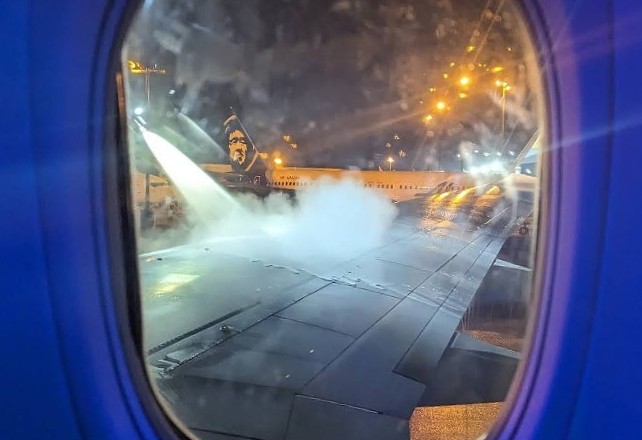
During the last round of debates in 2016, presidential hopefuls spent a whopping 5 minutes and 27 seconds talking about climate change. That’s less than they discussed the national debt.
You'd think people, especially politicians, would be more interested in the single most pressing issue of our time—one that touches everything from public health to the economy to immigration to trade to the food we eat and the water we drink and the air we breathe. But no. Even a few notable exceptions, it's just not an issue that gets all that much play in either politics or the media compared to everything—and I do mean everything—else. As Lisa Hymas pointed out recently in Grist, ABC’s World News Tonight, their flagship news program, spent more time covering the latest royal birth this month than they did climate change in all of 2018.
Still, while this may demonstrate some flawed priorities on the part of newsmakers, it's not like most viewers are clamoring for more climate coverage. As MSNBC host Chris Hayes tweeted last year, "every single time we've covered [climate change], it's been a palpable ratings killer. so the incentives are not great." (Hayes was widely criticized for this tweet by climate activists, and his show has increased climate coverage this year, including a special with AOC about the Green New Deal. At an event with the Columbia Journalism Review this month, he said that while the special didn't exactly break records for ratings, it was worth doing regardless.)
Part of the public's lack of interest, I suspect, is that climate change can often seem hopeless. I wrote about it for two years myself, and now that it's not my job to keep abreast of the melting ice caps, I find myself skipping over articles and news reports about anything remotely connected to the climate. I’ll see Elizabeth Kolbert has a new piece in the New Yorker about how half the world's species are going extinct, and I think, "Great. I hope everyone else reads it. I’d rather watch reruns of The Hills." It just feels hopeless, especially now, when climate change deniers are running the White House and instead of actually dealing with this monumental problem, we're still talking about whether or not the phenomenon even exists.
Well, it does exist. Even oil companies are now willing to admit it, and the repercussions of climate change are growing ever larger, from catastrophic wildfires in the west to disastrous floods in Texas to drought in Africa that threatens millions of lives. And while polls show that concern about climate change is increasing in the U.S. (53 percent of respondents in a Gallup poll shortly before the last midterms said that climate change is “extremely or very important”) it's still far less of a concern than healthcare, the economy, immigration, women's rights, guns, taxes, trade, and wealth distribution. Most voters do care, they just care about other issues a whole lot more. And if you look at human psychology, that makes perfect sense.
Humans, like all animals, are wired to care about our immediate needs more than the future. It's a survival mechanism. As Per Espen Stoknes, a Norwegian psychologist/economist and the author of What We Think About When We Try Not To Think About Global Warming told Yale's environmental magazine, "It seems we prefer to eat all our cake today and not care about the coming decades."
This particular glitch of human psychology becomes obvious when you look at who really cares about combating climate change and doing it now: In the U.S., it’s still an abstraction for people. Sure, there are fires and floods and sea level rise, but most of us can still go to the grocery store and pick up fresh produce. Most of us can turn on the faucet and expect that water will rush. But in places like Asia, Africa, Latin America, and the Pacific Islands, this isn't an issue that's coming tomorrow. It's right here, right now, and they can feel it, but distance makes climate change seem unimportant.
There’s also the monumental scope of the problem. Climate change is global, universal, enormous, and even if you personally decide to stop driving or taking planes or eating meat and commit to never having children, the bad news is, small, individual actions really don’t do much. What we need is wholescale changes—a total shift from burning carbon to using clean forms of energy, like solar, wind, and (despite its terrible reputation and the fact that we still don’t know what to do with the waste) even nuclear.
When you feel helpless, you're less likely to engage. "What we know from psychological studies is that if you overuse fear-inducing imagery, what you get is fear and guilt in people, and this makes people more passive, which counteracts engagement,” Stoknes said. This can lead to denial, a psychological mechanism that protects us from uncomfortable truths, but, at the same time, it hinders our ability to deal with what's inevitably coming.
So, what's to be done if you want the American public and the politicians and corporations who run this place to really start caring about climate? For one, people who cover this stuff for a living could start offering more than just the bad news. Some media organizations have tried this by focusing on what's called "solutions journalism,” but at this point, the vast majority of climate change coverage falls into the category of "We're Fucked." Writers offer the bad news, but no way to change it, but if we don’t offer some kind of hope, the natural reaction is to shut down and change the channel.
So let me begin: I'm hopeful, this time around, that the presidential debates will focus on climate change for more than 5 minutes and 27 seconds. After all, it really couldn’t get all that much worse.















